Why the Patrick Kane rape case investigation may take months

The future of Chicago Blackhawks winger Patrick Kane rests in the hands of the Hamburg (NY) Police Department, which has launched an investigation into allegations that the 26-year-old NHL star raped a woman earlier this month. According to published reports, Kane and friends went to SkyBar, a Buffalo nightclub, on the evening of Saturday, Aug. 1. There he met several women and proceeded to have drinks with them. By early Sunday, Aug. 2, Kane allegedly invited the women to a “private party” at his home in Hamburg. Kane then had his private driver take him, along with a male friend and the two women, to Kane’s home where one of the women asserts that Kane followed her into a room and overpowered her. He then allegedly raped her and caused other injuries, including bite marks on her shoulders and a noticeable scratch or scratches on her leg..
Shortly after the incident, the two women left the house. The alleged victim then called a relative on her cell phone, explained what just took place, and traveled to a nearby hospital where a rape kit was administered. A kit involves locating and securing foreign hair, foreign tissue and foreign fluid from the victim’s body and is considered essential for law enforcement in obtaining DNA and forensic evidence of rape. The results of the kit administered to Kane’s accuser have not been made public.
Here are four things to keep in mind as the Kane investigation continues:
1. The Kane rape investigation going forward
To be clear, Kane has not been charged with a crime and it may be some time before he finds out if he’ll be charged. Rape investigations can take many months and sometimes years. It may not be until next year when charges are filed or the investigation is dropped. For that reason, Kane could play the 2015–16 NHL season with the possibility of being charged at any moment during the season.
NHL has final say in how Blackhawks can deal with Patrick Kane rape case
A pivotal part of the police’s investigation will entail interviews conducted with Kane, his accuser and witnesses who were with them on the night in question. Several witnesses may have crucial testimony to share with the police. They include SkyBar’s owner, Mark Croce, who spoke with the Buffalo News and provided a description of a woman as pursuing Kane inside and outside the bar. Even if the woman was the accuser and even if she acted, as Croce put it, “flirtatious” around Kane, that would obviously not constitute her giving consent to go back to Kane’s house or to having sexual relations with him.
An additional witness of interest is Kane’s driver, Buffalo Police Lieutenant Thomas English. At the time, English was off-duty and engaged in his second job as Kane’s private driver (the Buffalo Police Department is reportedly investigating whether English was supposed to be on-duty the night of the alleged rape). English could possess valuable information about interactions between Kane and his accuser while in the car and whether the accuser expressed any concerns. English, who was with Kane at SkyBar, has been talking to the media. He recently told the Buffalo News that there was “mutual agreement” by Kane, his accuser and their friends that they go back to Kane’s home to “hang out.” Other reports, however, suggest that the accuser only went along for the ride to accompany her friend. Kane’s attorney, Patrick Cambria, has complained that much of the information reported by media about the Kane investigation has been false.
Still other key witnesses in the investigation include the two friends who accompanied Kane and his accuser back to Kane’s home. Other than when the alleged rape occurred, these two friends were in the presence of Kane and the accuser throughout the evening. Police will also attempt to interview persons who were at SkyBar and who might have spoken with Kane and his accuser or at least watched them. The relative with whom the accuser spoke with by phone after the alleged rape will also be a central witness. The same is true of the hospital staff who treated the accuser.
In addition to interviewing witnesses, police officers will assess evidence found at Kane’s home and in other locations. The officers, moreover, will review any communications—be they texts, emails or social media postings—by Kane and his accuser to determine whether they knew each other prior to having drinks. These communications would assist police in assessing the state of mind of Kane and his accuser before and after the alleged rape. In general, the investigation will attempt to ascertain whether enough evidence exists so that a decision to charge Kane is based on more than one person’s accusation versus another person’s denial.
2. Proving the crime of rape under New York law and how Kane might defend against any sex crime charges
Under New York law, as in other jurisdictions, rape refers to sexual intercourse without the consent of the other person. There are different degrees of rape that carry very different penalties.
In New York, a conviction of rape in the first-degree—the most serious rape charge—carries a sentence of up to 35 years in prison. Such a conviction is appropriate when the defendant engages in sexual intercourse by forcible compulsion or when the victim is incapable of consent “by reason of being physically helpless.” A conviction of rape in the second-degree, in contrast, is appropriate when the victim was incapable of consenting due to “mental incapacitation,” which can include intoxication. It is worth noting that there are reports that Kane and his accuser may have consumed significant amounts of alcohol. Second-degree rape carries a sentence of up to seven years in prison. Lastly, rape in the third-degree occurs when the victim is under 17 (which does not appear applicable to the Kane situation) or the victim failed to give consent. A conviction of third-degree rape carries a sentence of up to four years in prison.
Off-duty cop disputes details in Patrick Kane rape case
Upon release, a convicted rapist in New York must register as a sex offender for at least 20 years. Sex offender registration poses various life restrictions. They include having to be photographed regularly by the New York State Division of Criminal Justice Services and having to notify Internet service providers of screen names and email accounts.
In addition to rape, there are lesser charges that relate to sexual intercourse without consent. In New York, a defendant can be convicted of sexual misconduct for committing sexual intercourse without consent. Sexual misconduct is classified as a “Class A” Misdemeanor,” which in New York means a conviction would carry a potential sentence of up to one year in jail. Any conviction for a sex crime, even a misdemeanor, would be extremely damaging to Kane’s NHL career—especially since Canada might not grant him a visa to play games in Canada.
Although unlikely, the fact that Kane has a record of violating the law in New York could be used against him in the event that he is charged with a sex crime and convicted. In 2009, Kane pleaded guilty to disorderly conduct, a noncriminal violation, in a plea deal that followed an altercation with a cab driver. The deal only required that Kane apologize to the driver.
There are many defenses to rape charges. The most common one is that the victim gave consent, either verbally or by how the victim acted. It can sometimes be difficult for jurors to assess whether consent occurred when the accuser and accused disagree about what was said and what took place. This disagreement can work to the defendant’s advantage. Remember, prosecutors must prove a rape charge beyond a reasonable doubt, so they often need supplemental evidence to show a lack of consent. Without that evidence, a jury may be uncomfortable convicting a defendant who has been accused of rape.
Another defense to rape is that no intercourse occurred. It is unclear at this time whether the rape kit performed on the accuser confirmed that intercourse took place. Kane has not made any public statements.
3. Potential role of a grand jury should one be convened to investigate Kane
If Hamburg Police Chief Gregory Wickett and Erie County District Attorney Frank Sedita III conclude that there is sufficient reason to believe that Kane committed rape or sexual misconduct, prosecutors from Sedita’s office would likely present their case to a grand jury. In New York, grand juries consist of 23 jurors.
The grand jury proceeding could take many weeks, if not months, and would be conducted in private and out of public view. Grand jury proceedings are not like trials. Prosecutors run grand jury proceedings and those who are the target of the proceedings have few ways to rebut allegations or dispute implicating evidence. Also, only 12 of the 23 grand jurors would need to find probable cause—which means more likely than not, a much lower threshold than beyond a reasonable doubt—that Kane committed rape. If they found probable cause, they would issue what’s known as a “true bill.” A true bill would essentially be an authorization by the grand jury that Kane be indicted for rape. It is also possible that the grand jury votes for Kane to be indicted on a lesser charge such as sexual misconduct, or votes “no bill” meaning no indictment. Kane has been indicted once before by an Erie County grand jury: in 2009, a grand jury indicted him after his aforementioned incident with a cab driver.
4. Other legal implications: civil lawsuit, termination of endorsement deals and termination of NHL contract
I. The accuser could sue Kane and Kane could try to reach a financial settlement with her
Even if Kane is not charged with a crime, the woman who has accused him of rape could sue him. A civil lawsuit would only threaten Kane with monetary damages, but still be damaging to his reputation. The four most likely civil claims to be brought against Kane are battery, assault, false imprisonment and intentional infliction of emotional distress. Battery and assault would refer to Kane allegedly having intercourse with his accuser without her consent and in a way that put her in fear of imminent harm. False imprisonment would correspond with Kane allegedly preventing his accuser from leaving a room in his house. Intentional infliction of emotional distress, which refers to extreme and outrageous conduct, would center on Kane allegedly trying to cause his accuser severe emotional distress. Under New York Law, Kane’s accuser has one year from the date of the alleged incident (Aug. 2, 2015) to commence litigation against him before the statute of limitations will expire.
• NHL players who have had brushes with the law
Often civil litigation settles before a trial; sometimes it settles before the filing of any complaint. If Kane, who in 2014 signed an eight-year contract extension with the Blackhawks worth $84 million, wants his accuser to avoid speaking further about the allegations, he might authorize his attorneys to convey a significant settlement offer to her. The offer could entail Kane agreeing to pay his accuser millions of dollars in exchange for her silence. Along those lines, the offer might stipulate that she agree to not to testify against Kane in any criminal prosecution. Whether his accuser would accept such a deal is unknown.
II. Bauer may move to suspend or terminate its endorsement deal with Kane
When companies sign athletes to endorsement contracts, the contracts often include a “morals clause.” This clause typically makes it very easy for a company to suspend or terminate the endorsement contract in the event the athlete encounters legal problems and other controversies. To illustrate, one morals clause used by a prominent company reads that if the athlete “brings himself or the company into public disrepute, contempt, scandal or ridicule, or which insults or offends the community, as determined by the company,” the company can suspend or terminate the contract. Note that with these clauses, the athlete need not be charged with a crime, let alone convicted of one, in order for the company to end an endorsement deal. All that is required is the athlete “offending the community,” as determined by the company.
Blackhawks may have little choice but to suspend Patrick Kane
The role of a morals clause is highly relevant to Kane’s situation. Clearly, rape allegations are extremely serious and very damaging to the reputation of a person accused of rape. It is possible that Bauer, which Kane has endorsed for several years, could consider invoking a morals clause. Bauer would not need to wait for Kane to be charged with a crime to invoke that clause. The company, however, likely will wait to see if he’s charged and might even wait to see if Kane is convicted. Keep in mind, if Bauer severs ties with Kane now and Kane isn’t later charged with a crime, other NHL players and their agents would remember Bauer’s choice when considering endorsement opportunities with different companies. Expect Bauer to remain loyal to Kane at least until he faces an actual charge.
Kane did not get the same benefit of the doubt from Electronic Arts. The video game publisher recently announced that “in light of the ongoing investigation involving Patrick Kane,” it was dropping Kane from the cover of its upcoming game NHL ’16. The company added that Kane would not appear in any promotional activities for the game. It is unclear how much money, if any, Kane lost as a result of EA’s decision.
III. The Blackhawks could move to suspend or terminate Kane’s contract
Kane is one of the best players in the NHL. It is unlikely that the Blackhawks will take any steps to punish Kane unless he is charged with a crime. Nonetheless, if the team eventually seeks to suspend or terminate Kane’s contract, the team would have options available to it. SI.com hockey expert Allan Muir recently detailed how the Blackhawks could use the standard player contract and the collective bargaining agreement to either suspend or terminate Kane’s contract. Muir also explained how the National Hockey League Players’ Association could challenge such a move, much like it has done to challenge the Los Angeles Kings recently terminating Mike Richards’ contract.
As noted above, if Kane is convicted of a sex crime, he could experience significant difficulty getting a visa from Canada to play games there. If Kane can’t play games in Canada—where seven of the 30 NHL teams are located—his NHL career would effectively be over.
GALLERY: NHL players who've had brushes with the law
NHL Players and the Law
Patrick Kane
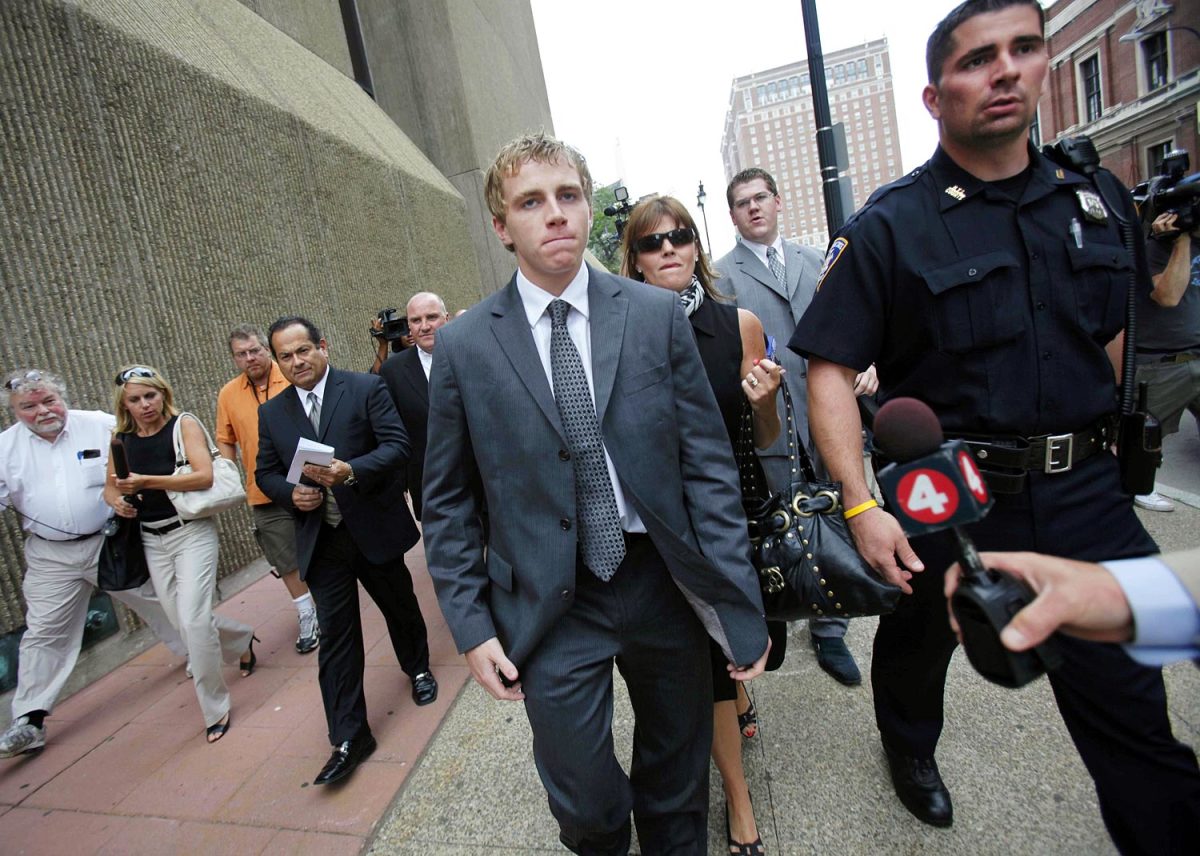
In Aug. 2015, the Blackhawks star was accused of sexual assault by a woman who went to his home near Buffalo, NY. No charges were filed after an investigation. Kane's maturity was first called into question during the summer of 2009 when he and his cousin James got into a late night fracas with a Buffalo cab driver over 20 cents change on a $14.80 fare. After pummeling the driver, Kane, then 20, and his cousin fled but were caught by cops. Kane pleaded guilty to non-criminal disorderly conduct. All other charges were dropped.
Mike Richards
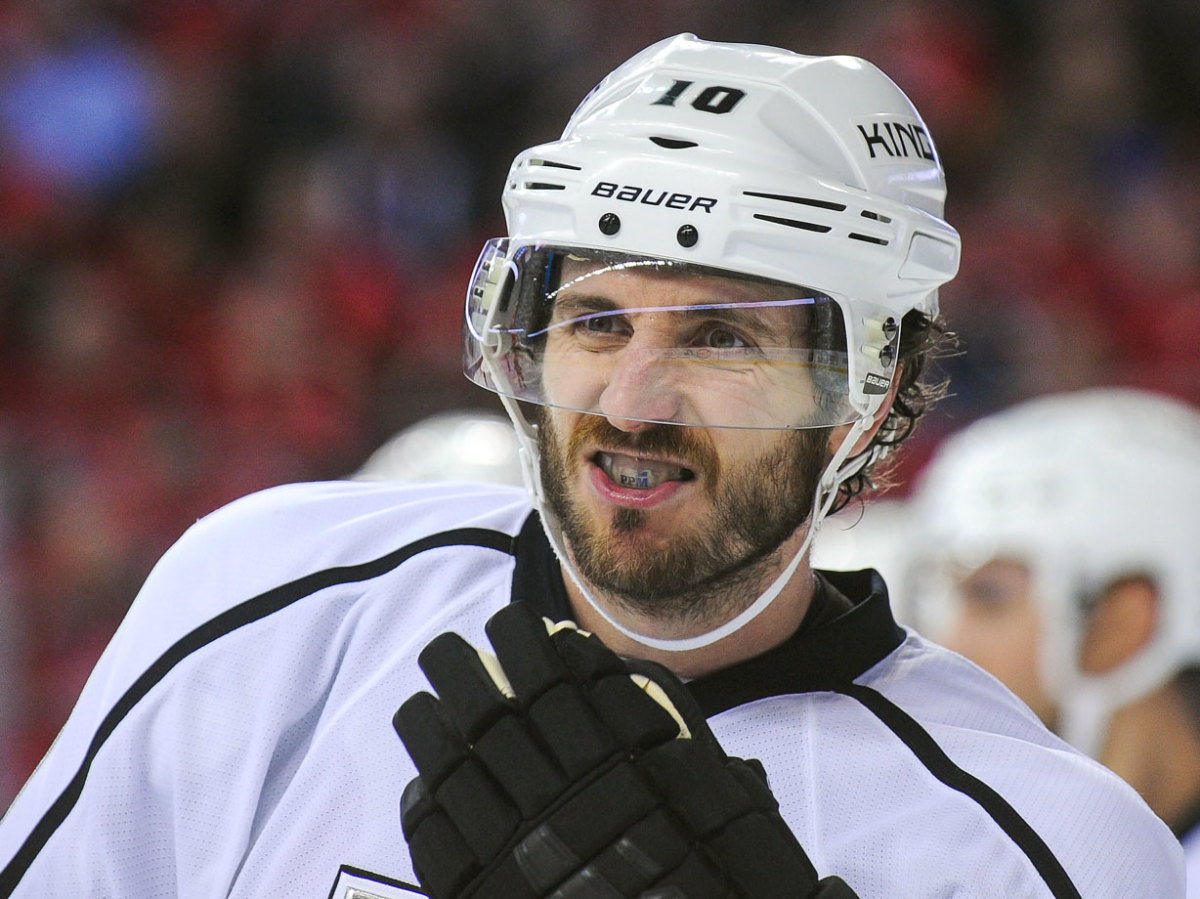
The Kings terminated the veteran center’s contract after he was arrested at the U.S.-Canadian border in May 2015 for alleged unlawful possession of the painkiller oxycodone. Richards was reportedly detained by police and charges were later filed.
Ryan O'Reilly

After signing a seven-year, $52 million deal with the Sabres following his trade from Colorado, the 24-year-old center was arrested in Lucan, Ontario for driving while impaired. According to police, O'Reilly crashed his pickup truck into a Tim Hortons' donut shop shortly after 4.am. on July 9, 2015 and fled the scene with his passengers. Cops later found him walking on a nearby street and his blood alcohol level was found to be over the legal limit of .08%.
Jarret Stoll
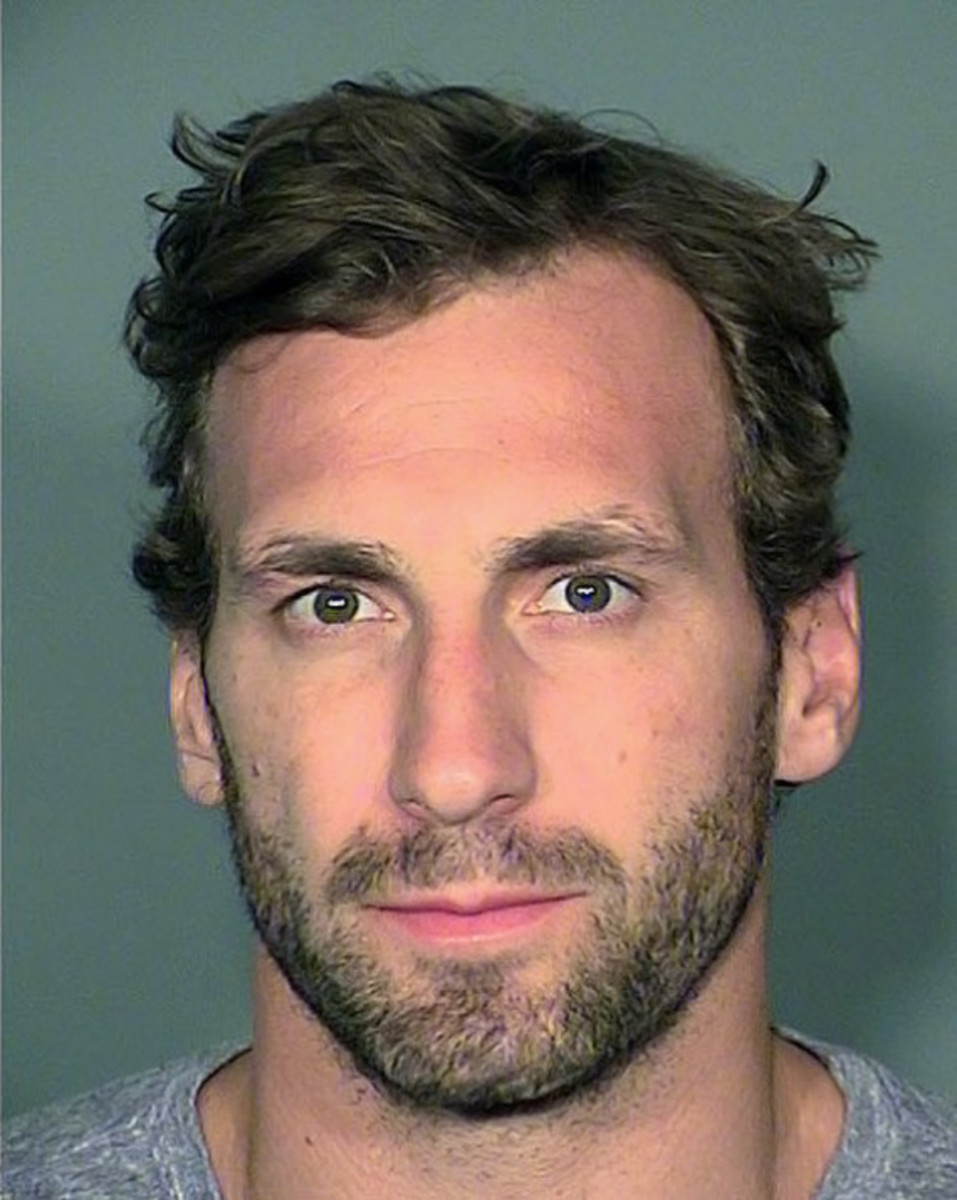
Las Vegas police arrested the Kings forward in April 2015 for allegedly trying to smuggle cocaine and Molly into a pool party at the MGM Grand Hotel. He was released on $5,000 bail and the charge was later reduced from felony drug possession to two misdemeanors (trespass and breach of peace). Stoll was sentenced to 32 hours of community service.
Slava Voynov
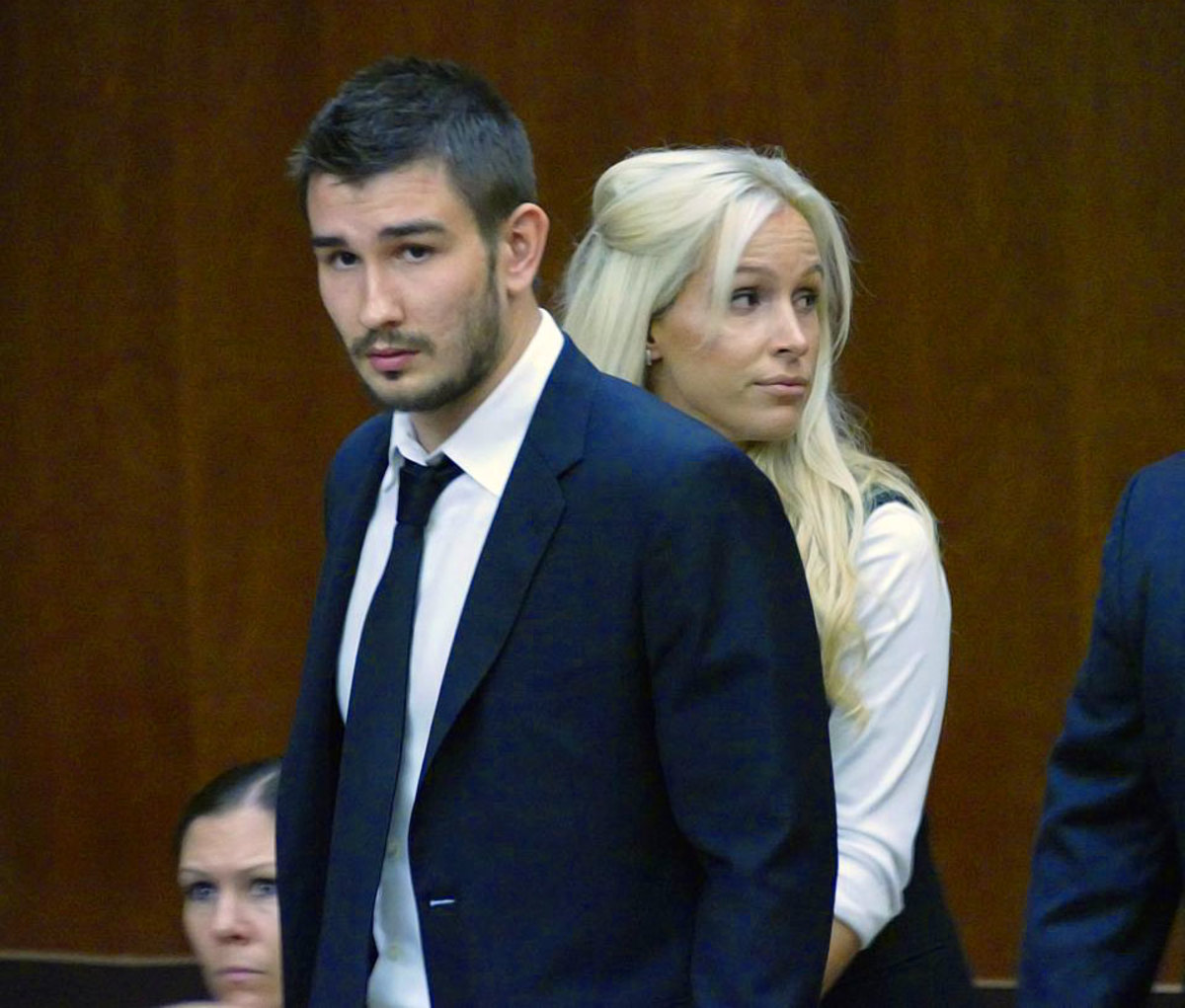
The Kings defenseman was charged with a felony count of corporal injury to spouse with great bodily injury after assaulting his wife on Oct. 19, 2014. He was suspended indefinitely by the team and pleaded not guilty, later accepting a “no contest” plea deal that carried a jail term of 90 days and possible deportation to his native Russia. Voynov voluntarily left the U.S., effectively ending his NHL career.
Claude Giroux
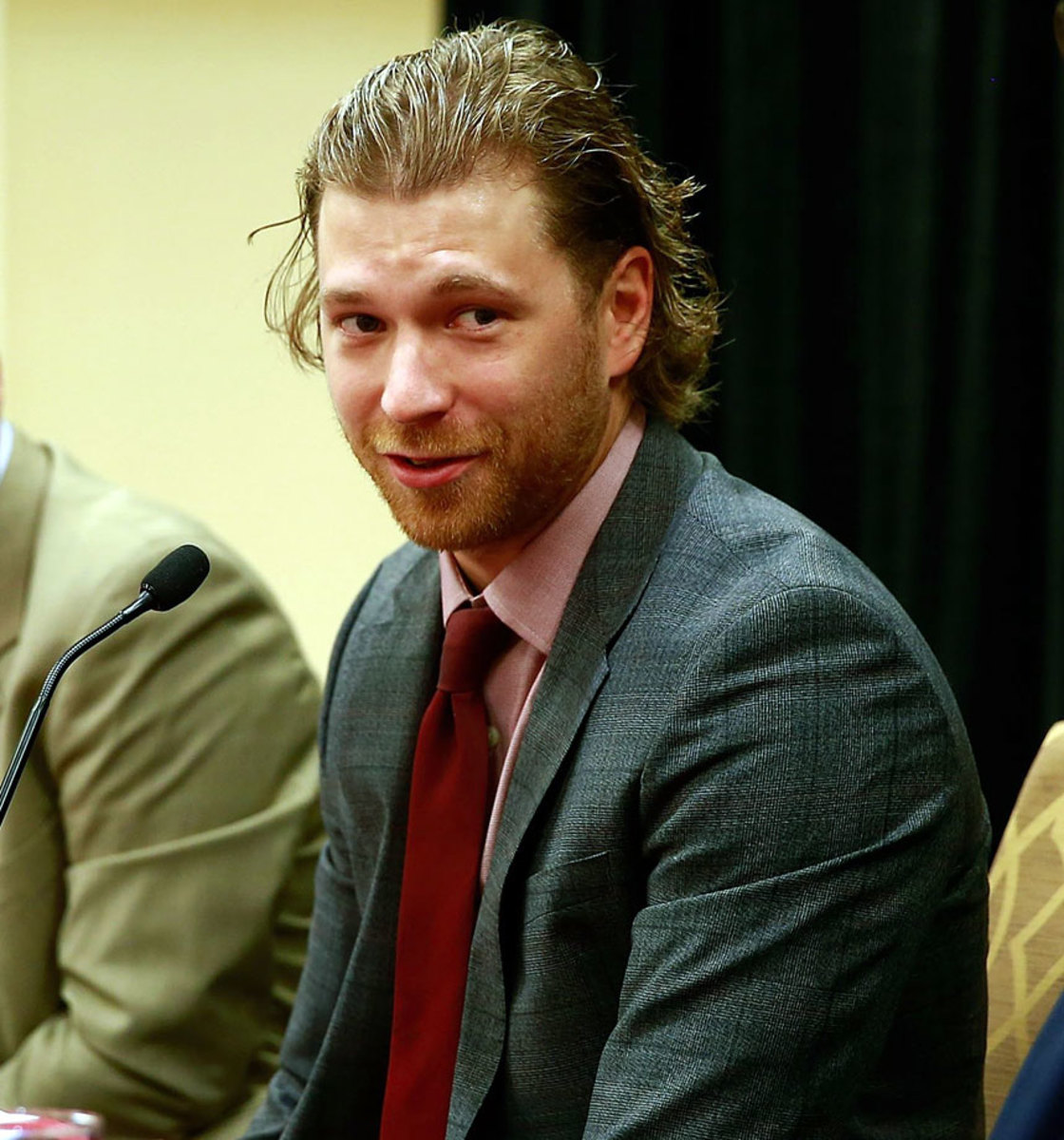
The Flyers' star center was arrested in Ottawa on July 2, 2014 and spent the night in jail for allegedly repeatedly grabbing the buttocks of a male police officer, the Ottawa Sun reported. Alcohol was believed to be a factor in the incident. According to the paper, the police refused to comment directly on Giroux unless charges were filed. Giroux was later released without being charged with any crime.
Ryan Malone

Tampa police arrested the Lightning winger at 3:19 a.m. on April 12, 2004 and charged him with DUI and cocaine possession. He was also cited for driving with a suspended license and found to have seven violations within the past year, including speeding. He pleaded no contest to DUI and was given 12 months probation. After being bought out by the Lightning and entering a recovery program, he signed with the New York Rangers the following September.
Semyon Varlamov
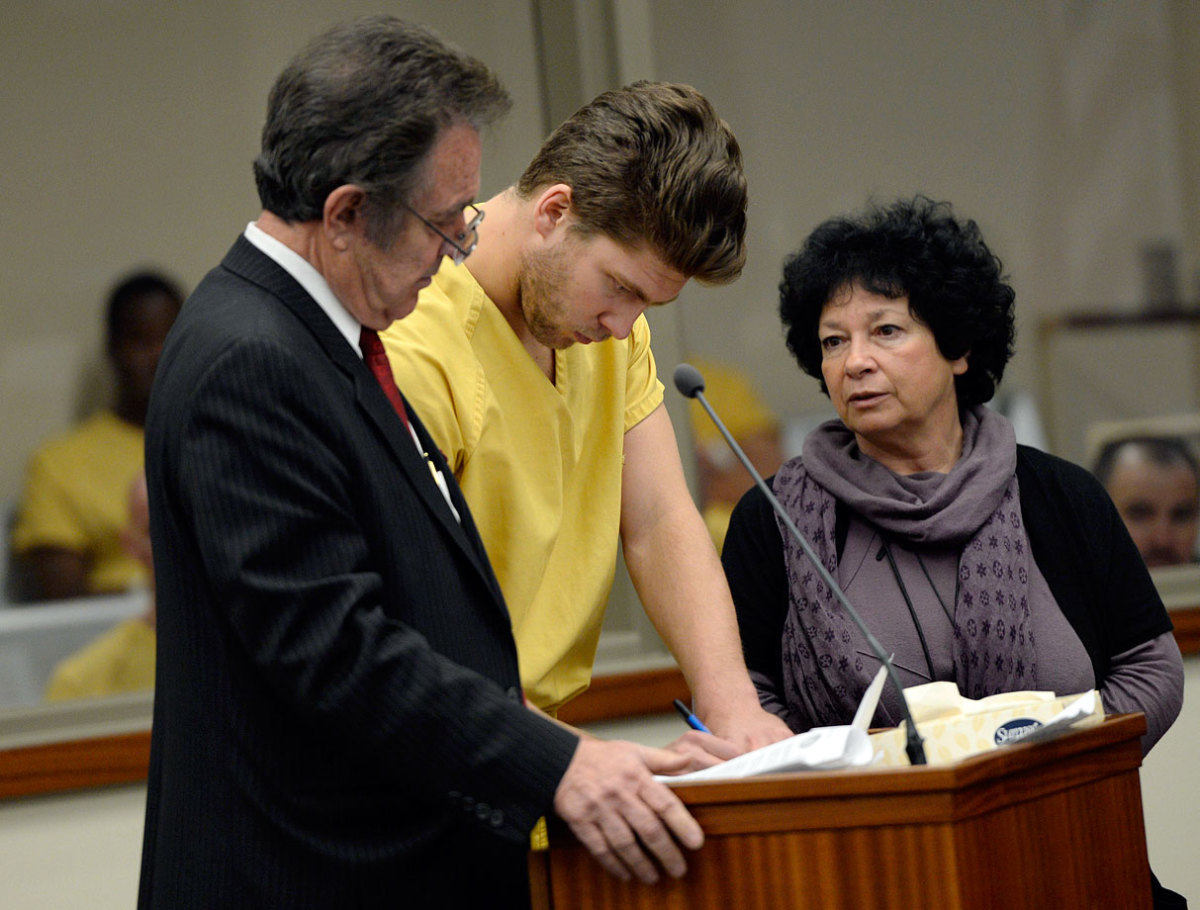
On the eve of Halloween 2013, Semyon Varlamov, the starting goalie for the Colorado Avalanche, was arrested on domestic violence charges that included second-degree kidnapping and third-degree assault in connection with an incident involving his girlfriend. On Nov. 22, he was formally charged with misdemeanour assault and faced up to two years in jail, but one month later the charge was dropped by a Denver judge after prosecutors said they could not prove the case beyond a reasonable doubt.
Patrick Roy
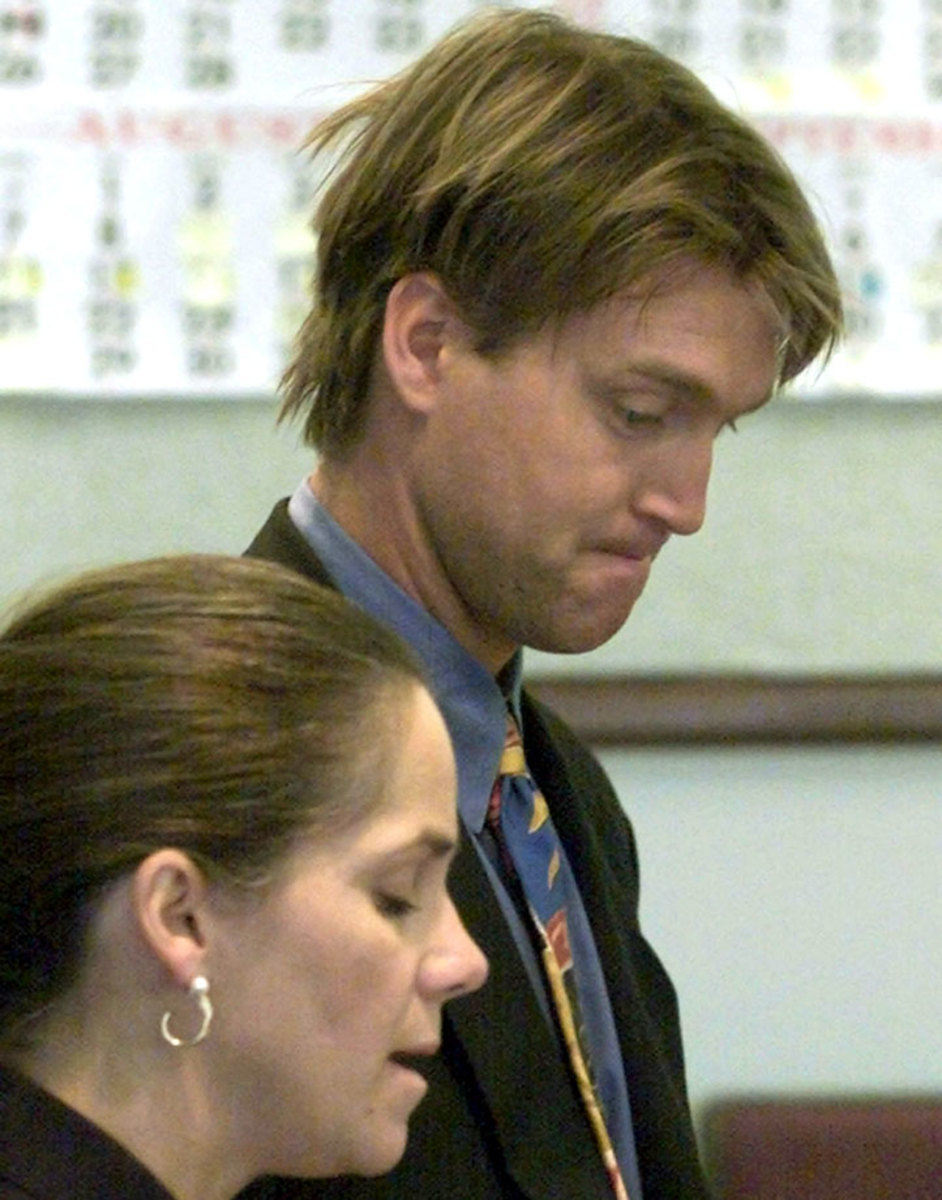
The current Avalanche coach was the team's goaltender when he was arrested after his wife called 911 during an argument about in-laws in October 2000. Mrs. Roy was unhurt and the fiery goalie admitted that he'd yanked two doors of their hinges. He was released on bail and the case was later dismissed by a county judge because it did not meet the standard misdemeanor criminal mischief during an act of domestic violence.
Nikolai Khabibulin

The Oilers' veteran goalie was busted for extreme DUI and speeding near Phoenix in February 2010 while rehabbing a back injury. He received a 30-day jail sentence.
Ed Belfour
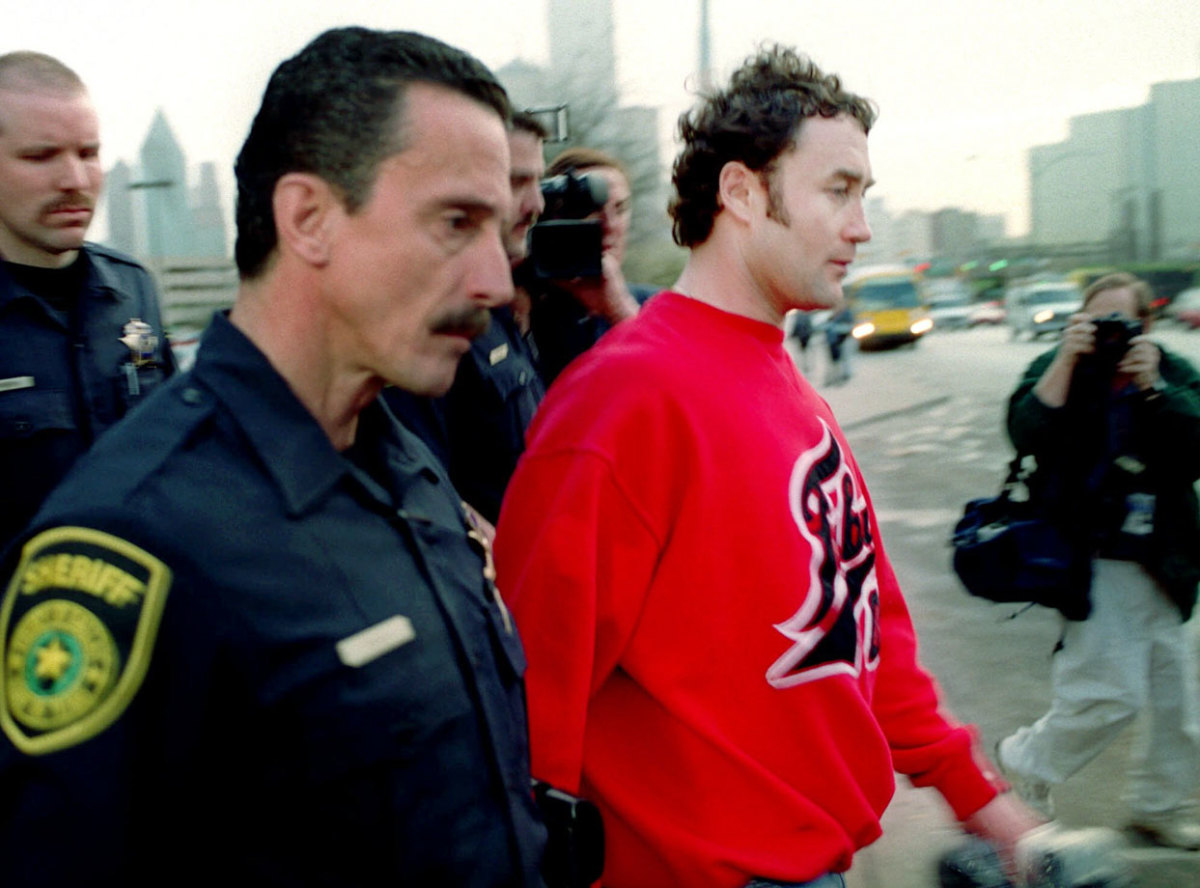
The Stars goalie was involved in a March 2000 incident at a Dallas hotel where security was called after his female companion became frightened by Belfour's drunken belligerence. He grappled with a guard, kicked two police officers, and was blasted with pepper spray. He later offered the cops a billion dollars to not take him to jail. No dice. He ended up pleading guilty, apologizing, and being given two years probation and $3,000 fine.
Mike Danton
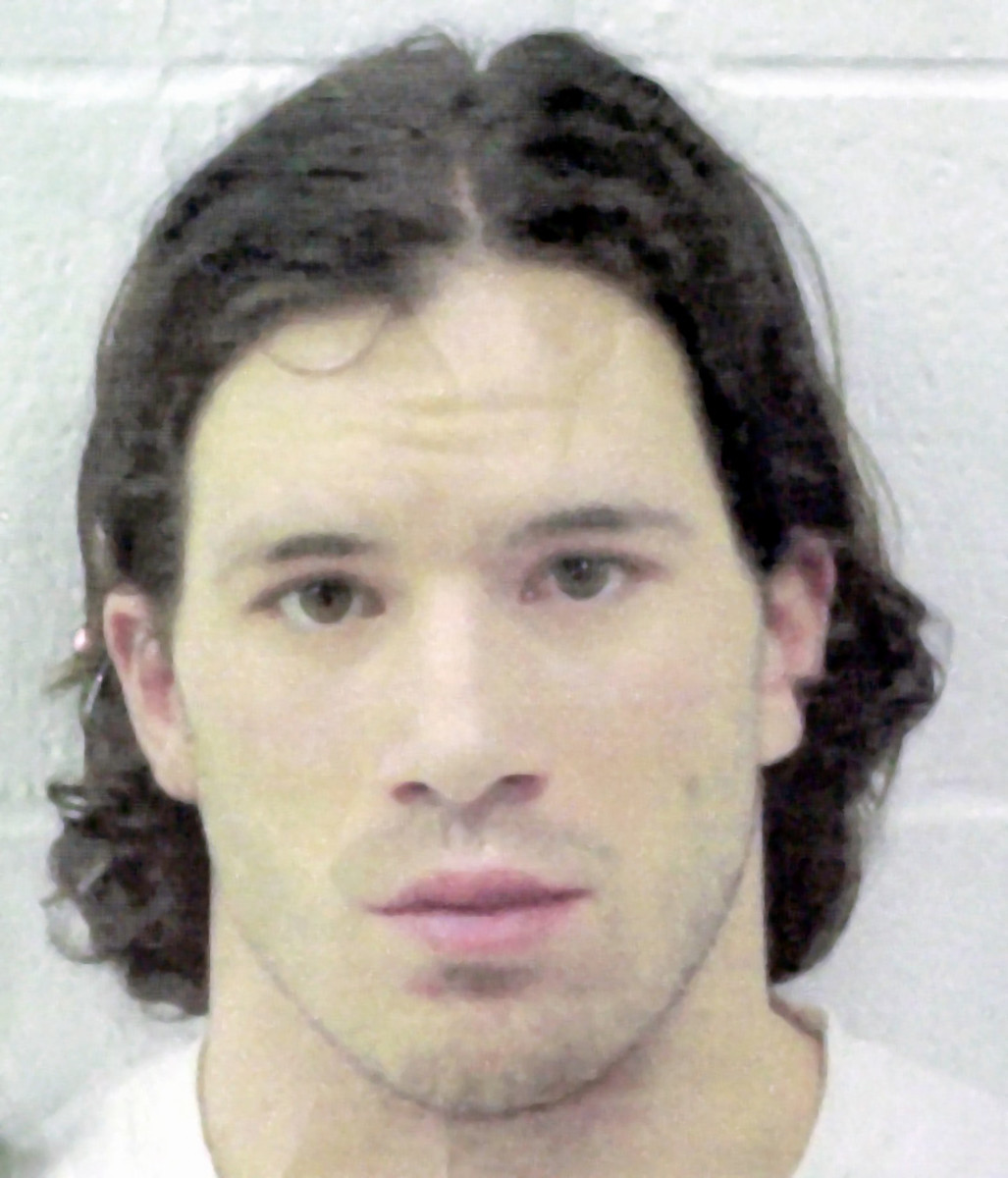
In April 2004, the Blues forward, 23, was arrested at an airport in San Jose and charged with conspiring to have a man killed, a man who was said to be coming to St. Louis to murder Danton over money owed. Prosecutors contended that the man in question was David Frost, Danton's agent. Danton insisted the man was his father, Steve, and he attempted suicide in Santa Clara (Calif.) County Jail shortly after his arrest. He later reached a plea deal and was sentenced to 90 months in federal prison. The judge said, "In over 18 years on the bench, I have [never] been faced with a case as bizarre as this one." After serving 65 months, during which time he received intensive therapy, Danton was freed in the fall of 2009. He resumed his playing career at St. Mary's University in Halifax, NS, and later for teams in Austria and Slovakia. "I'm glad I went to prison," he told SI in 2011.
Rick Tocchet
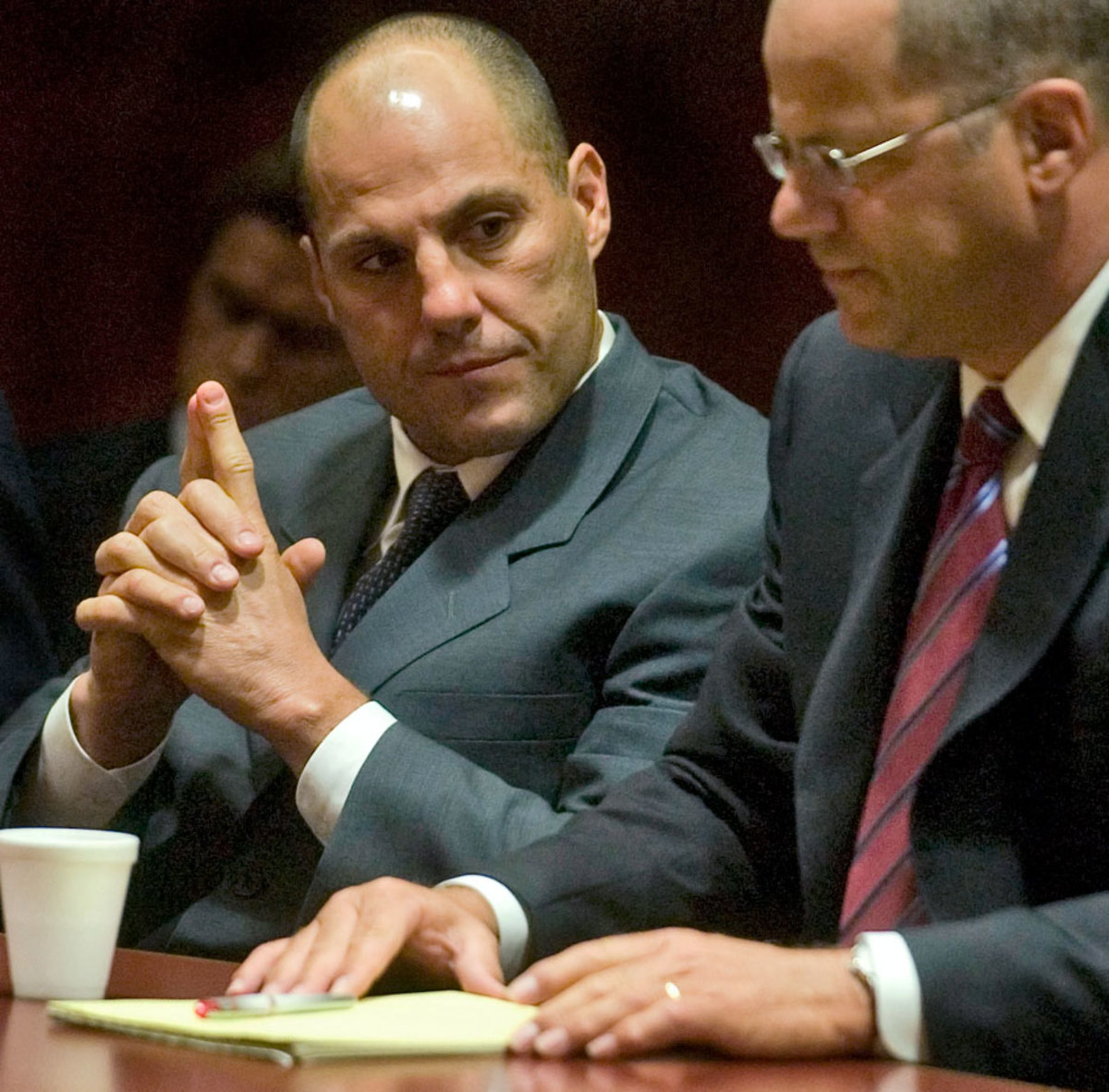
The former forward, then an assistant coach with the Phoenix Coyotes, was charged by authorities in New Jersey with financing a multi-million dollar bookmaking operation that took bets from other NHL players and allegedly had mob ties. The incident caused great embarrassment for Coyotes coach Wayne Gretzky, whose wife, Janet Jones, and was said to have placed wagers with Tocchet, who later pleaded guilty in May 2007 and was given two years probation. He could have spent five years in prison.
Kevin Stevens
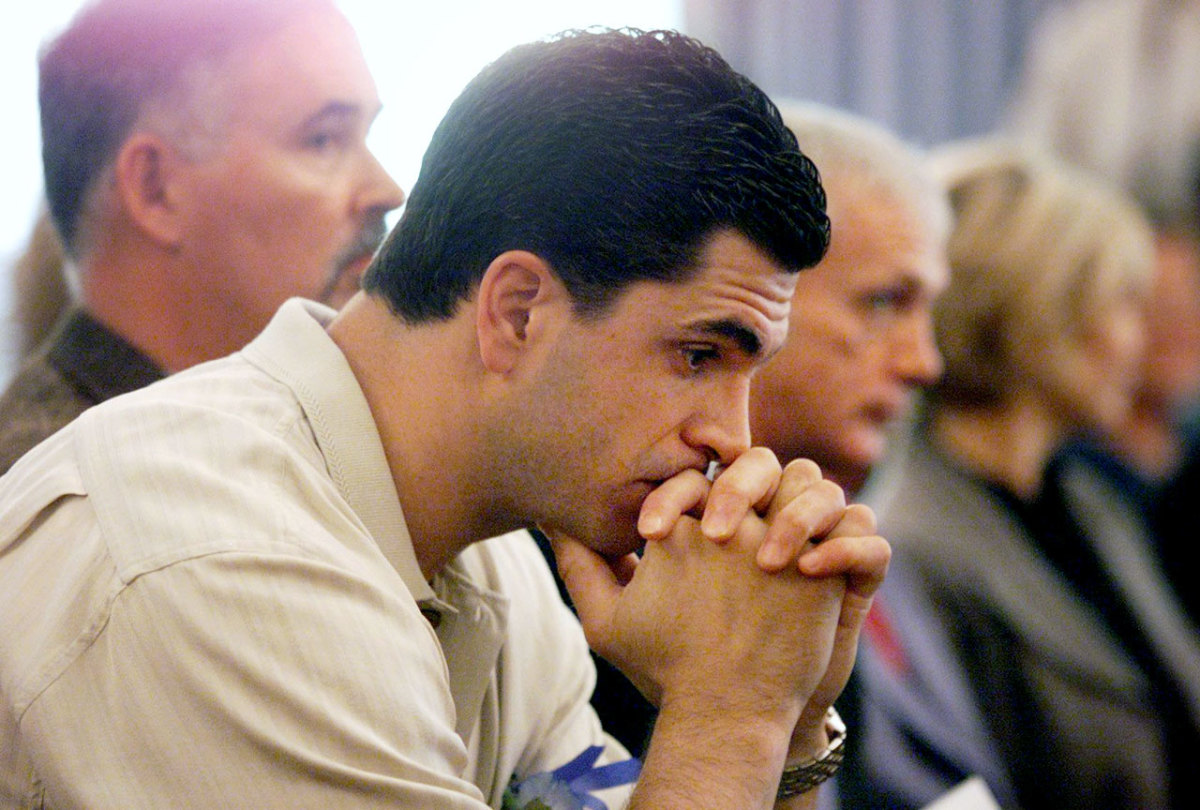
The New York Rangers winger, an alternate captain and popular family man, was busted at a grimy Collinsville, Ill., motel in January 2000 for soliciting a prostitute and possessing drug paraphernalia as well as the remains of a crack eight-ball. He faced a felony drug charge and later entered the NHL's substance abuse program. After two months in rehab, the drug charge was dropped.
Theo Fleury
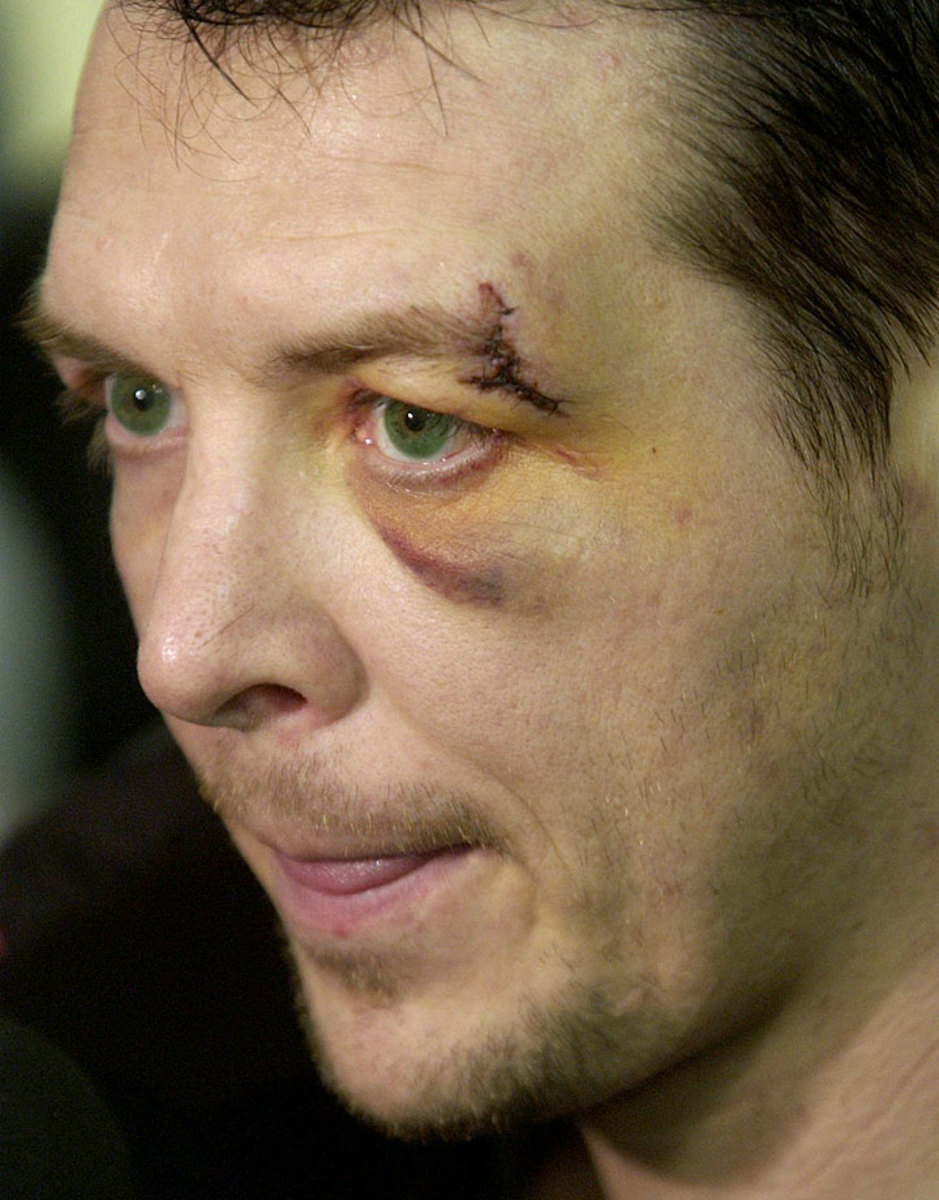
The NHL career of the talented but troubled forward, a sex abuse victim, all but ended in January 2003 with a drunken brawl in a Columbus, Ohio, strip club. After signing a two-year deal with Chicago the previous August, Fleury was suspended 25 games at the start of the season for violating his substance abuse aftercare program. He ended up getting sober and briefly attempted a comeback in 2009.
Bob Probert
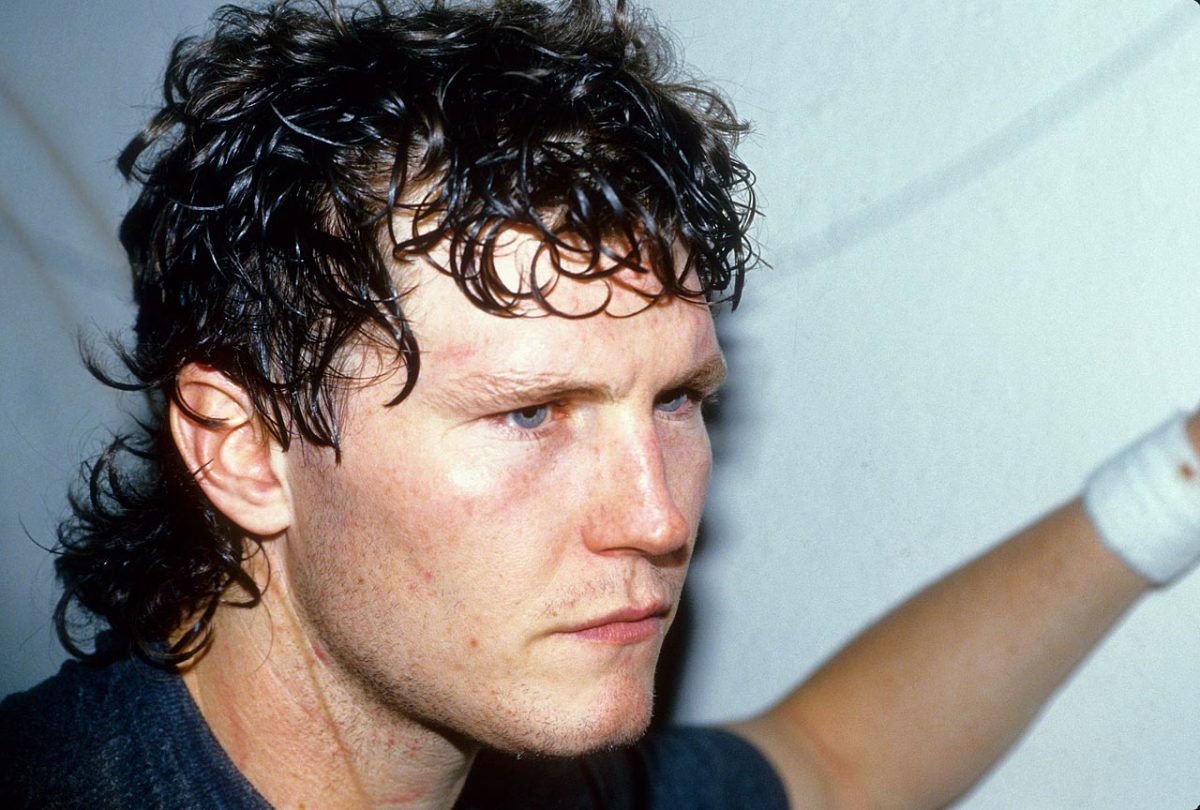
The late enforcer was frequently in the news for a variety of transgressions, not the least of which was a March 1989 bust on the US-Canada border during which customs officers found 14.3 grams of cocaine in his undershorts. At the time, Probert had been in and out of rehab clinics five times in the preceding three years. He became the first player in more than four decades to be banned from the NHL, serving three months in prison before later being reinstated, but the trouble never stopped. In 2004, he was Tasered during an altercation with police.
Dino Ciccarelli
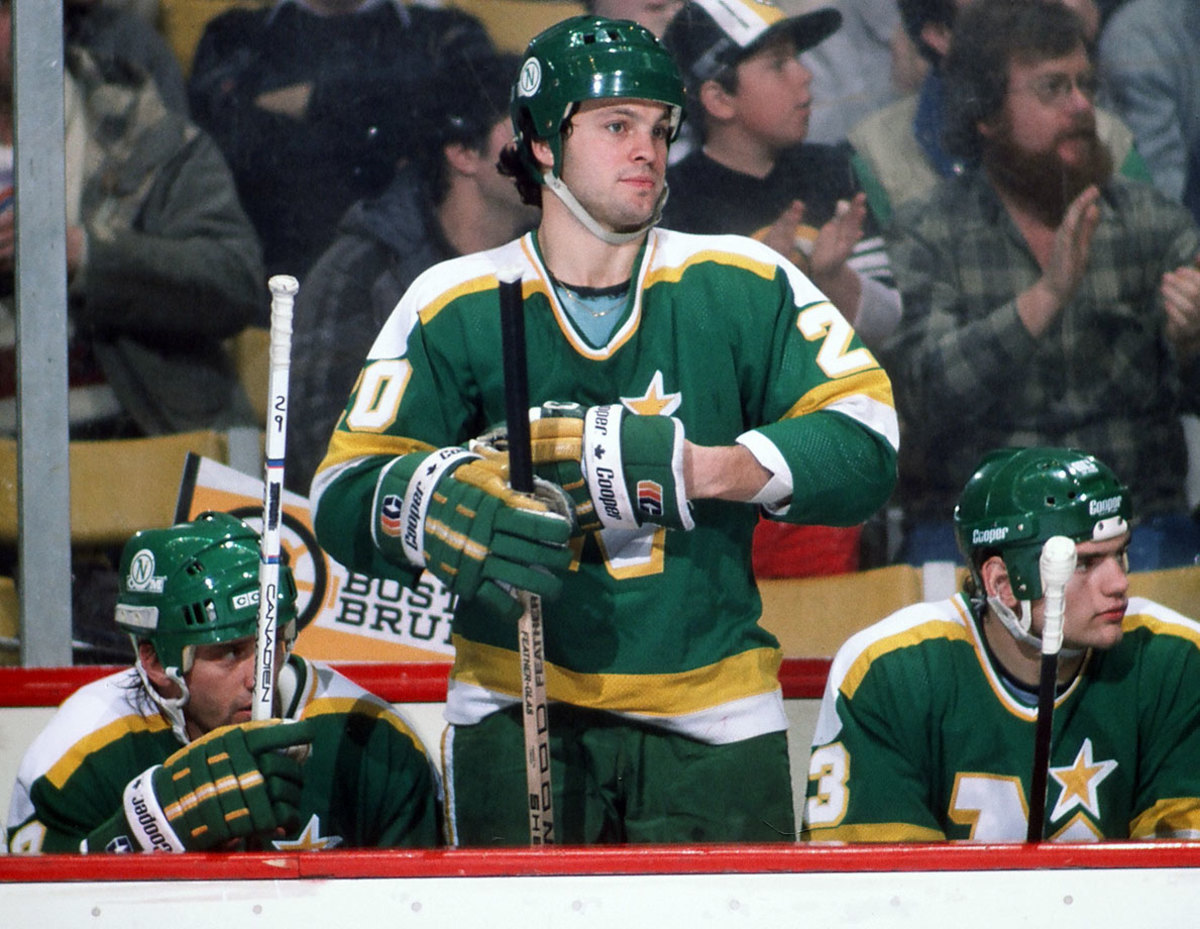
The Minnesota North Stars winger was nabbed in November 1987 when he took a stroll to fetch the newspaper outside his home in Minneapolis while wearing only a sweater. A female neighbor did not find he view to be particularly heartwarming and called the cops. He was given a year's probation and community service. In January 1988, he became the first NHL player to be arrested for an on-ice assault, after clubbing Luke Richardson of the Maple Leafs with a stick. He was found guilty, spent a day in jail and paid a $1,000 fine on top of a 10-game suspension by the league.
Dustin Byfuglien
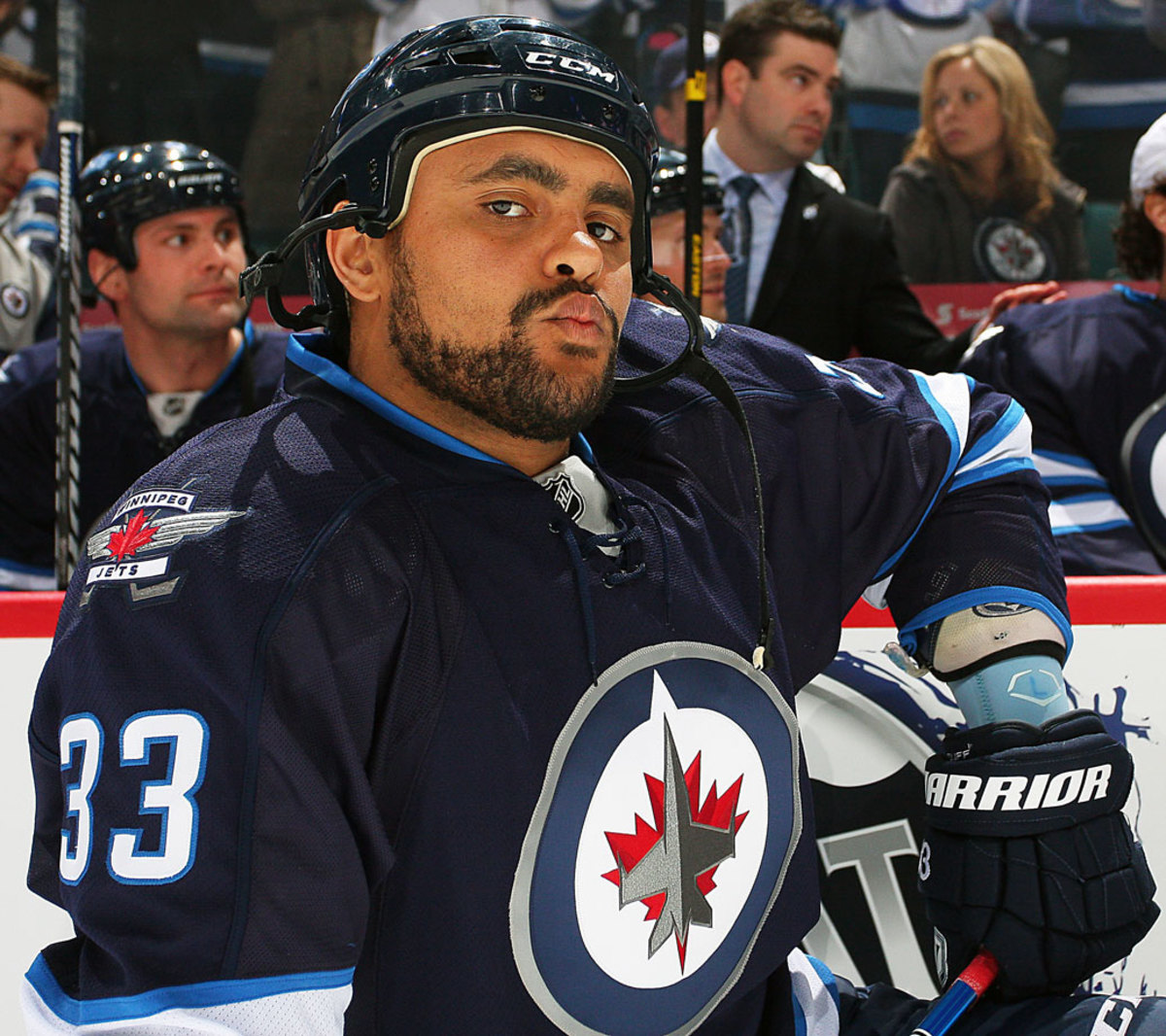
The Winnipeg Jets blueliner was busted for suspicion of operating a motorboat on Lake Minnetonka in Minnesota while under the influence. In July 2012, he reached a pre-trial agreement: a plea of guilty to a charge carrying a $1,000 fine and a sentence of 30 days that was reduced to two, which he spent doing garbage pickup and other productive but menial jobs.
Brett Sutter

The Calgary Flames forward and son of the team's then-GM Darryl Sutter, was accused in November 2010 of being extremely drunk when he punched a cab driver in the face outside a Scottsdale, Ariz. bar from which he'd been tossed for disorderly behavior. Brett, then 23, was brought down by bouncers and faced a misdemeanor charge. He pleaded guilty and was fined $323.60.
Joe Corvo
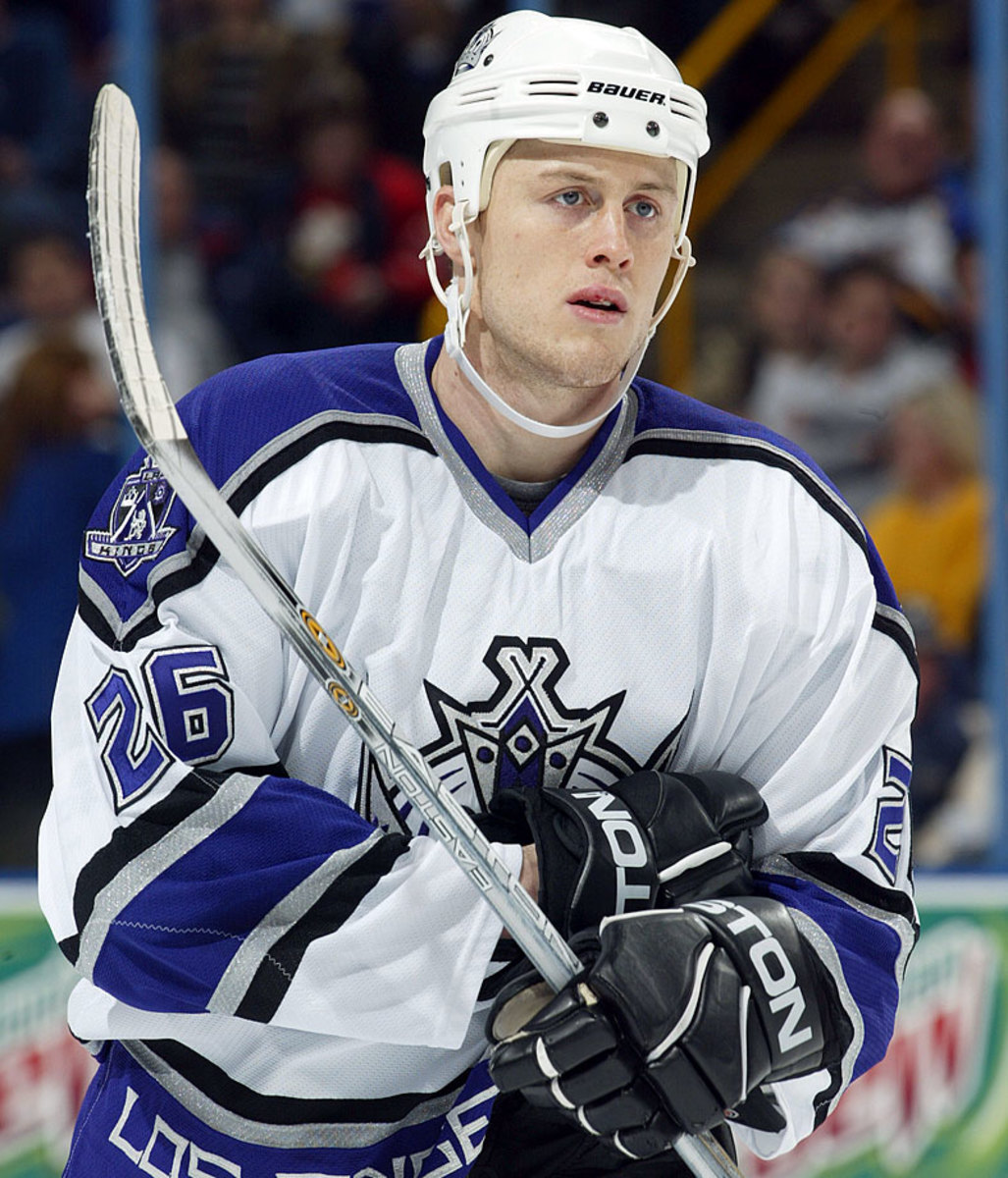
The LA Kings blueliner was busted at a Boston eatery in November 2002 after being ejected for grabbing a woman's rump, then returning to punch and kick her. Corvo fled but was apprehended and faced a litany of assault and battery charges to which he pleaded guilty. The Kings suspended him for three games and he took anger management classes, later citing the incident as the turning point of his future.
Ziggy Palffy
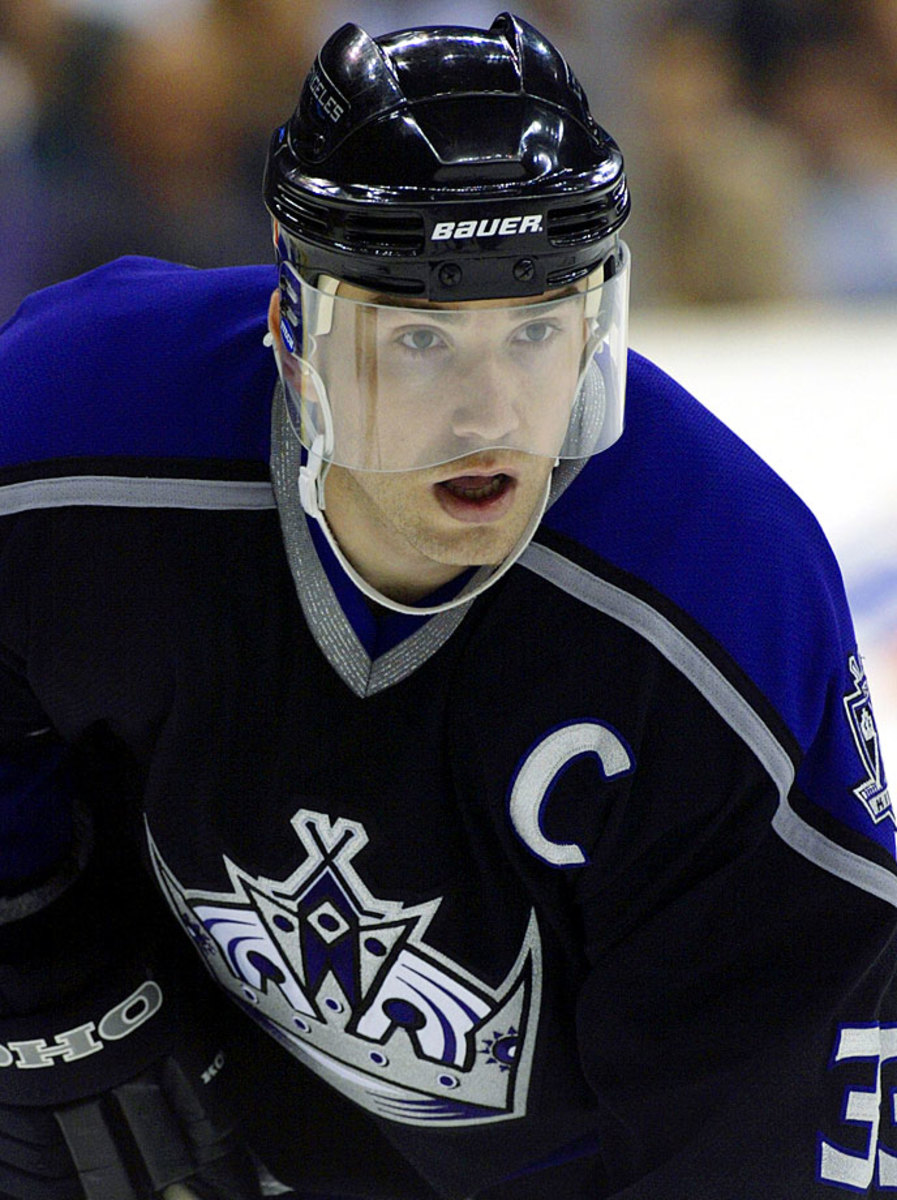
The Kings forward was arrested in October 2003 during an investigation of domestic battery after a confrontation with his fiance in Manhattan Beach, CA. He was released on his own recognizance. The charge was dropped after the district attorney cited insufficient evidence and decided against filing it. "It's unfortunate that a personal matter had to become public but I appreciate everyone's support and I am glad that I can now put this behind me," Palffy said in a statement.
Dany Heatley
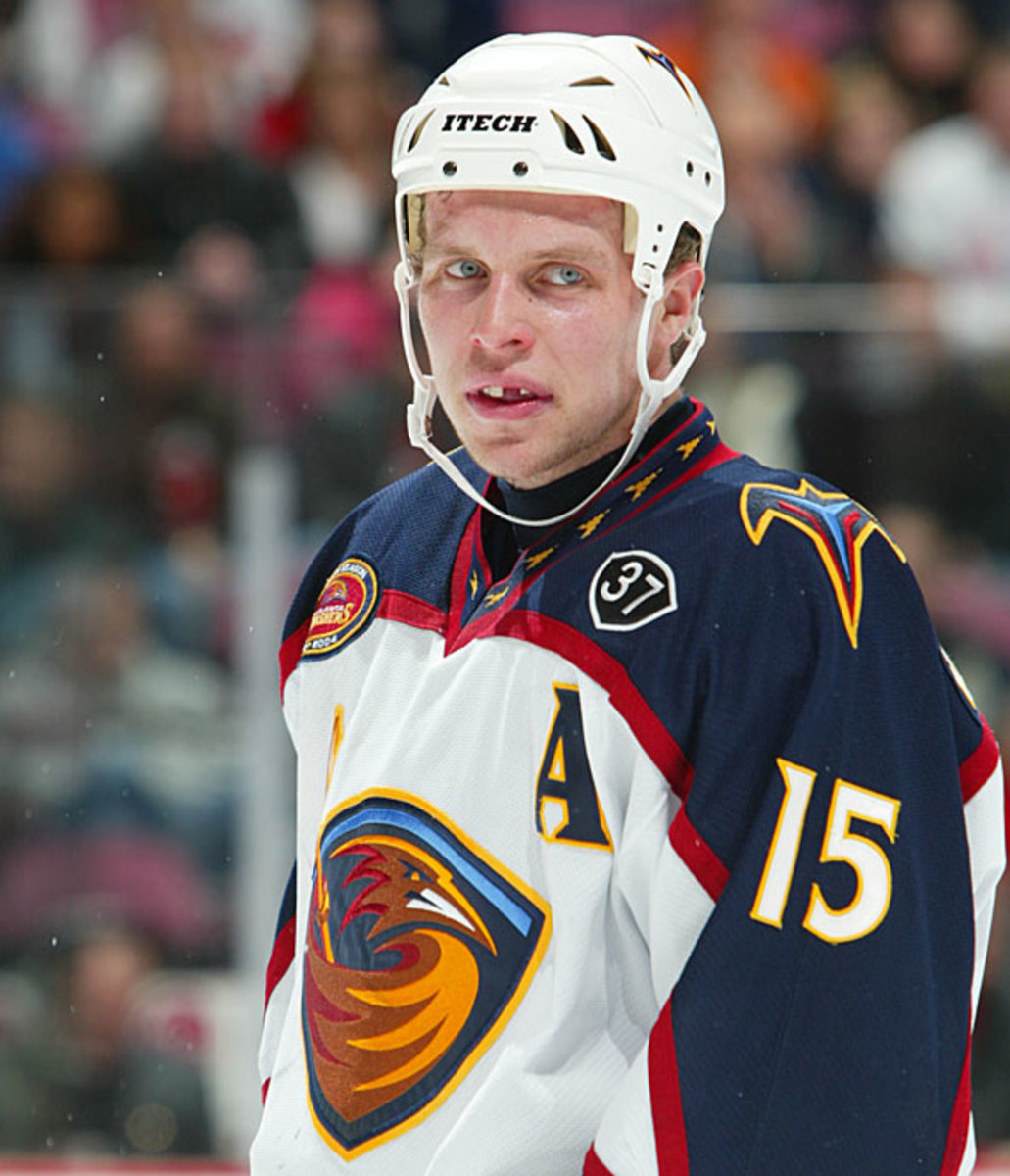
The Thrashers winger, 22, was charged with six counts in a vehicular homicide on Sept. 29, 2003 when he crashed his Ferrari while speeding in Atlanta. Friend and teammate Dan Snyder was killed in the accident and Heatley faced up to 20 years in jail. He pleaded guilty to four charges and was sentenced to three years probation after Snyder's family told the judge they did not want the remorseful Heatley imprisoned.
Michael McCann is a Massachusetts attorney and the founding director of the Sports and Entertainment Law Institute at the University of New Hampshire School of Law. In the fall 2015 semester, he will teach an undergraduate course at UNH titled “Deflategate.” McCann is also the distinguished visiting Hall of Fame Professor of Law at Mississippi College School of Law and he teaches “Intellectual Property Law in Sports” in the Oregon Law Sports Law Institute.
